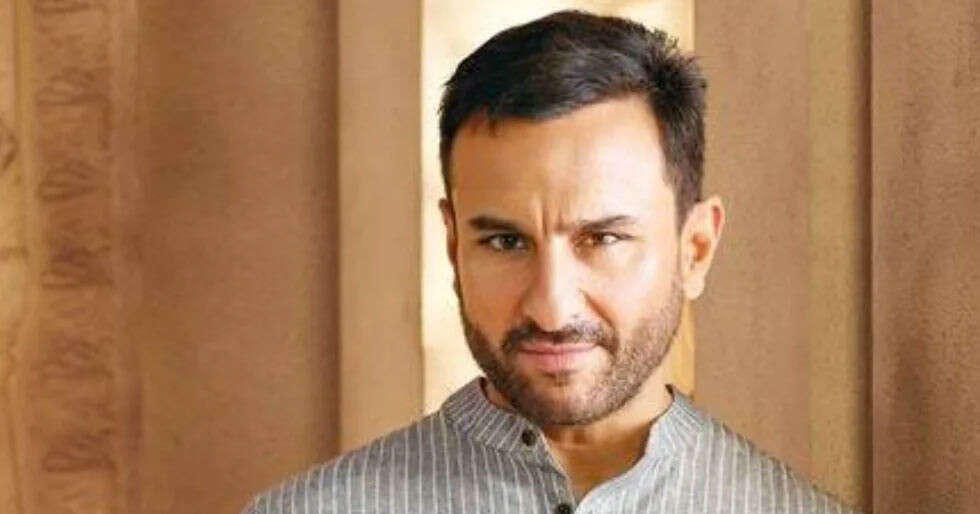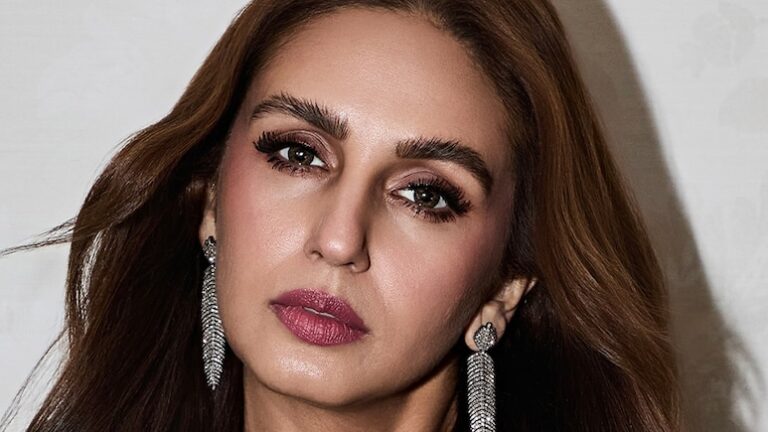Saif Ali Khan, born Sajid Ali Khan Pataudi on 16 August 1970, in New Delhi, India, is one of the most versatile actors in Hindi cinema. He comes from a royal and celebrated family. His father, Mansoor Ali Khan Pataudi, popularly known as the Nawab of Pataudi, was the former captain of the Indian cricket team. His mother, Sharmila Tagore, is a legendary actress of Indian cinema and a recipient of the Padma Bhushan.
Saif is the eldest of three siblings: his sisters Saba Ali Khan (a jewelry designer) and Soha Ali Khan (actress and writer). This unique blend of aristocracy and cinema shaped Saif’s personality and outlook from an early age. He completed his schooling at The Lawrence School, Sanawar, and later at Lockers Park School, Hertfordshire, UK, followed by Winchester College, UK.
Entry into Bollywood
Saif Ali Khan made his acting debut with Parampara (1993), directed by Yash Chopra, though the film did not fare well. However, his career picked up with films like Main Khiladi Tu Anari (1994) and Yeh Dillagi (1994), where his comic timing and charming screen presence earned him recognition.
Through the 1990s, Saif was often cast in supporting or second-lead roles in multi-starrer projects such as:
- Hum Saath-Saath Hain (1999)
- Kachche Dhaage (1999)
- Main Khiladi Tu Anari (1994)
Though he struggled to find a solo identity during this period, his light-hearted roles and stylish image made him a popular star among the youth.
Turning Point – The 2000s
The early 2000s became the most important phase in Saif’s career. He reinvented himself and transitioned from supporting actor to acclaimed leading star.
- Dil Chahta Hai (2001): This cult classic by Farhan Akhtar gave Saif’s career a new direction. His role as Sameer, the charming yet goofy friend, became iconic.
- Kal Ho Naa Ho (2003): Starring alongside Shah Rukh Khan and Preity Zinta, Saif won hearts as Rohit Patel. His comic timing and emotional depth earned him the Filmfare Award for Best Supporting Actor.
- Hum Tum (2004): Marked a huge milestone. His portrayal of cartoonist Karan Kapoor opposite Rani Mukerji won him the National Film Award for Best Actor, proving his versatility.
- Parineeta (2005): A critically acclaimed role that showed his maturity as an actor.
- Salaam Namaste (2005): A modern romantic comedy that connected with urban audiences.
During this period, Saif became a reliable star for romantic comedies and dramas, earning both commercial success and critical acclaim.
Experimentation and Success
Saif continued to experiment with different genres:
- Omkara (2006): Vishal Bhardwaj’s adaptation of Othello saw Saif as Langda Tyagi, a villainous role that showcased his range. His performance earned widespread acclaim and several awards.
- Love Aaj Kal (2009): A modern take on relationships, directed by Imtiaz Ali, was another box-office success.
He also appeared in comedies like Race (2008), Race 2 (2013), and thrillers like Ek Hasina Thi (2004), proving his adaptability.
2010s – Mixed Phase
The 2010s were a mixed bag for Saif. He delivered successful films like:
- Cocktail (2012) – A modern romance where his performance stood out.
- Race 2 (2013) – High-octane thriller.
- Go Goa Gone (2013) – India’s first zombie comedy, where Saif played a quirky Russian mafioso.
However, films like Bullett Raja (2013) and Chef (2017) did not perform well commercially. Despite this, Saif’s willingness to take risks kept him relevant.
Digital Breakthrough
Saif reinvented himself again with the rise of OTT platforms:
- Sacred Games (2018–2019): Playing Sartaj Singh, a troubled Mumbai police officer, Saif won immense appreciation worldwide. The Netflix series gave him a global audience and revived his career in a big way.
- Tandav (2021): A political thriller web series, where he played Samar Pratap Singh, showcased his ability to portray complex characters.
Recent Films
In the 2020s, Saif has continued to diversify his roles:
- Tanhaji: The Unsung Warrior (2020) – Played the antagonist Udaybhan Singh Rathore; his performance was praised.
- Bhoot Police (2021) – A horror-comedy with Arjun Kapoor.
- Adipurush (2023) – Played the role of Lankesh (Ravana), though the film received criticism.
He remains active in both films and web series, balancing commercial and experimental projects.
Personal Life
Saif Ali Khan’s personal life has often been in the spotlight.
- He married actress Amrita Singh in 1991. The couple had two children, Sara Ali Khan (now an actress) and Ibrahim Ali Khan, before divorcing in 2004.
- In 2012, Saif married actress Kareena Kapoor Khan, one of Bollywood’s top actresses. They are blessed with two sons, Taimur Ali Khan and Jehangir Ali Khan (Jeh).
Saif is also the 10th Nawab of Pataudi, though the royal titles have no official recognition today.
Awards and Achievements
- National Film Award for Best Actor (Hum Tum, 2004).
- Multiple Filmfare Awards for films like Dil Chahta Hai, Kal Ho Naa Ho, and Omkara.
- Honored with the Padma Shri in 2010 for his contribution to Indian cinema.
Legacy and Impact
Saif Ali Khan is admired for his versatility, elegance, and experimentation. Unlike many of his contemporaries, he has constantly evolved, balancing mainstream cinema with offbeat roles. His transition from chocolate-boy hero to complex characters in films and OTT content has cemented his reputation as one of Bollywood’s most stylish and talented actors.
Often called the “Nawab of Bollywood”, Saif’s contribution lies in bringing modern, urban, and unconventional roles to Hindi cinema. His legacy is not only about stardom but also about reinvention and adaptability in a constantly changing industry.
Conclusion
Saif Ali Khan’s journey reflects versatility and reinvention. From charming romantic roles to award-winning performances and bold web series choices, he has proven his adaptability across generations. Known as the “Nawab of Bollywood,” Saif balances mainstream and experimental cinema, making him a timeless actor who continues to evolve with grace and style.





